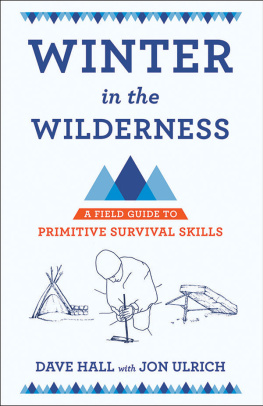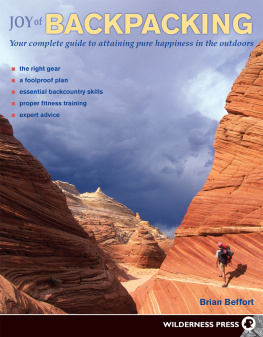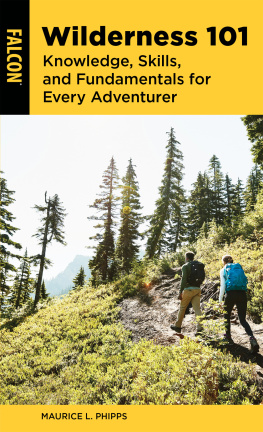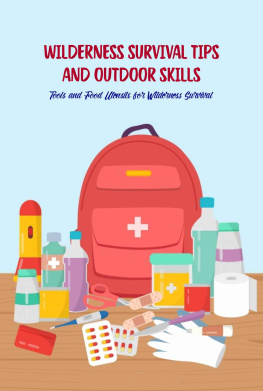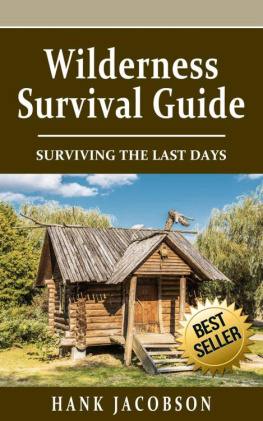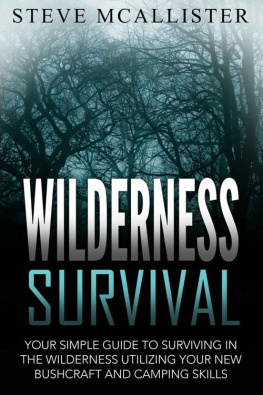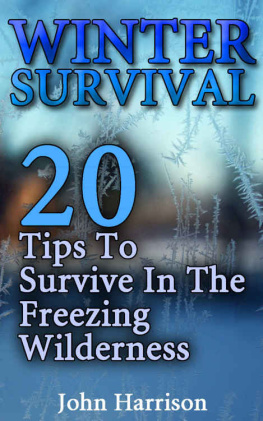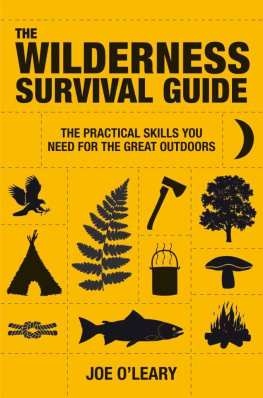Acknowledgments
A book is never the work of one or two people. We thank the following individuals for their tireless support of, and dedication to, this project.
I would like to start by thanking all the youth and families with whom I have worked over these many years. I especially want to acknowledge the amazing participants who were there from the beginning and were part of so many winter adventures: Lily, Estelle, Emily, Megan, Connor, Zach (the Mule), Brian, Adam, Sam, Savanah, and Greg. I also thank Linda Schoffel for being an awesome supervisor. Thanks to all the Primitive Pursuits staff members with whom I have worked over the years, especially Tim Drake, Jed Jordan, Beth Bannister, Heidi Bardy, and Dave Muska. You guys are the best.
Thank you to my friends, Jeff and Sue, for all your assistance during countless winter overnights. A special thanks to Kevin Clarke and David Werier for their guidance with this project. To my dear friend Tom Liebler, who saved my ass so many years agothanks, Bait. Thank you to everyone at Cornell University Pressespecially Kitty, Peter, Karen, Jamie, and Emily.
To my sister and parents: You have always encouraged me in all my endeavors. Thank you so much for all that you have done.
To my loving, wonderful, and supportive family: Thank you, Jacob and Aron, for all your help over the years building and experimenting with snow shelters. Thank you so much to my beautiful wife, Sharon, who always lets me get away on my crazy adventures. I love you all so much.
Last but not least, I thank Jon for being the best guy in the world to work with. This book wouldnt have happened without you.
Dave Hall
I thank Kitty (for all the late-night e-mails), Peter, Karen, Jamie, and all the wonderful people at Cornell University Press. I also thank my loving familyLaura, Graham, and Elliottfor the accommodations they made over the years this book was written. To my parents, thank you for cheering us on every step of the way. Last, I thank Dave for the opportunity to contribute to such a pioneering work.
Jon Ulrich
Appendix A
Motor Vehicle Considerations
In the fall of 2006, James Kim and his family left their home in San Francisco for a Thanksgiving trip to the Pacific Northwest. After they departed from Seattle, the familys vehicle became stranded near a canyon in the remote Oregon wilderness. Despite being ill prepared, Kim left his wife, Kati, and daughters, Penelope and Sabine, in an effort to seek aid. His body was discovered more than a week later. Rescuers and medical experts determined that Kim, who had wandered more than ten miles from the familys vehicle, had become disoriented from hypothermia.
In recent years, changing weather patterns have caught more and more people off guard as winter storms knock out utilities and strand motorists on roadways. Beyond the fundamentals of winter survival, stranded motorist emergencies have their own unique considerations. Learning to prepare for the unexpected can help you make the most of an emergency. The same priorities that apply to wilderness settings need to be respected in these situations.
Problems
Vehicles often provide us with a false sense of security. As we drive from one place to another, its easy to forget that were traveling through wilderness areas, and as a result, we neglect to take appropriate precautions. Mechanical failure, accidents, or inclement weather may throw travelers into unexpected survival situations.
I recommend that you dress (or pack) as if you were going to have to leave your vehicle. I do this even when Im traveling from home to work and back. Its only a twenty-five-minute commute, but I know how quickly winter conditions can turn ugly. Another incentive for having the right clothing is that cell phones dont always work. Even though I live in an area that is moderately populated, there are dead zones where cell phones dont receive service. Coincidentally, one of these zones happens to be in an isolated area that historically gets significant snowfall and where roadway conditions are treacherous.
Be wary of GPS units and online directions. People have relied on modern travel aids and found themselves on country roads (or even seasonal highways) well off the beaten path. Where I live, I caution people not to use GPS units to find their way to our home. More than once people have been directed to go up an unmaintained dirt road that, even in the summer, is best handled by a four-wheel-drive vehicle.
Prevention
When embarking on a road trip, let someone know of your travel plans. Be sure to relay your timeline, travel route, make, model, license plate number, and color of your vehicle, as well as the names and ages of everyone in your party. The best person to tell is the person youre going to visit. Telling a friend at home is also advisable, but he or she wont miss you if your arrival is delayed. Stay in touch with your destination if youre running late or choose to alter your route. The idea here is that if you do become stranded, your contact will be able to aid in any search-and-rescue efforts.
Before any trip, be sure to check the weather. Many stranded-vehicle situations could be avoided if motorists not only checked the weather before departing but stayed home or on vacation an extra day. Vehicles are only so capable. Submit to Mother Natures power and stay away from roadways when it seems like the sensible thing to do.
In addition to bringing clothing that will shelter you from the elements if you need to work outside or travel on foot, it is wise to have extra survival gear in your vehicle. My family takes only a few big road trips each winter, but I have a box of items that will assist us in meeting our needs if the unexpected arises. This includes a shovel, extra food, blankets, a means of procuring water, and fire starters. A complete list of recommended items is covered in appendix B.
What to Do If You Are Stranded
If you are stranded, the same fundamental needs that you would encounter in a wilderness-based situation apply here. The difference is that you can use your vehicle to your advantage. A vehicle offers refuge from wind and precipitation and is a space that, to an extent, will maintain heat. (If your car still starts, heat may be less of an issue.) Use this resource wisely. Keeping warm is your number one priority. Wear extra clothes, use blankets and sleeping bags if you have them, and use your heater conservatively.
For the Unprepared
Years ago I saw Tom Brown Jr. and several of his instructors from the Tracker School on one of the morning news shows. Among other things, Tom and his team illustrated how a car could be stuffed full of leaves, using it as a container much like a leaf crib. This is an excellent idea if insulating materials are available.
To avoid exhausting your fuel supply, exercise caution when running your vehicle to maintain warmth. The following ideas will help bolster your automobiles sheltering capabilities and will serve you well if you become stranded.
As you have already learned, snow is an excellent insulator when used in shelter construction. There have been many times when I have camped out in my vehicle in the winter. My minivan works well for this, and I have always been prepared with a good sleeping mat and winter sleeping bag. Vehicles can get cold. Without heat, added insulation, or proper camping gear, a night spent in a vehicle can be extremely uncomfortable.
One way to improve the insulating property of your car is to cover it in a thick layer of snow, essentially using your vehicle as the core of a snow shelter. Cars are made of metal and varying degrees of insulation but are not necessarily constructed with the survivalist in mind. My own van, for instance, has small holes in the internal frame where the seats can be adjusted that lead directly to the outside. Cold seeps into our cars. Turning your car into a snow shelter will increase its value immensely.

